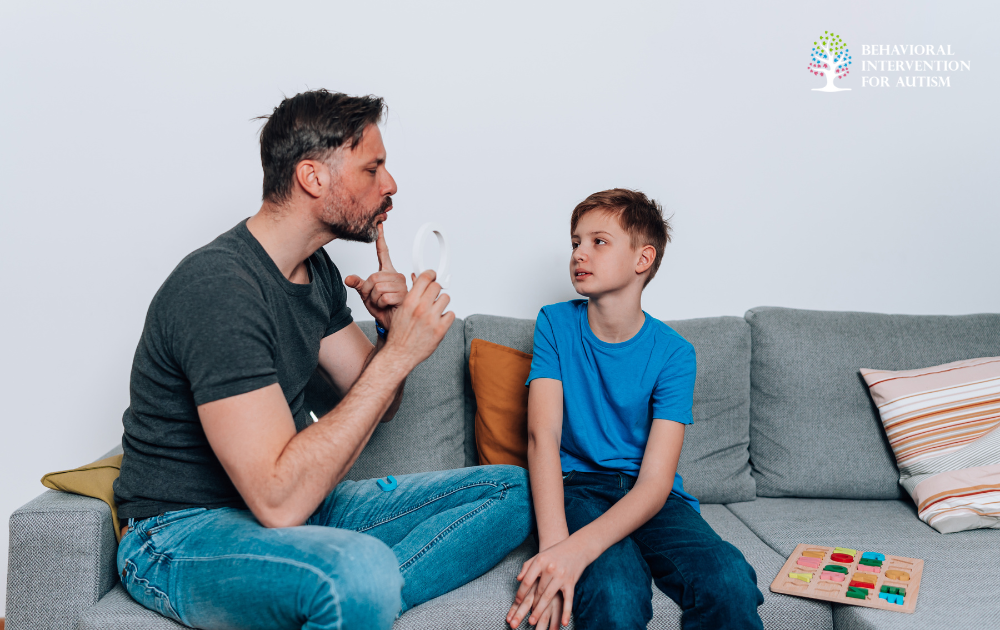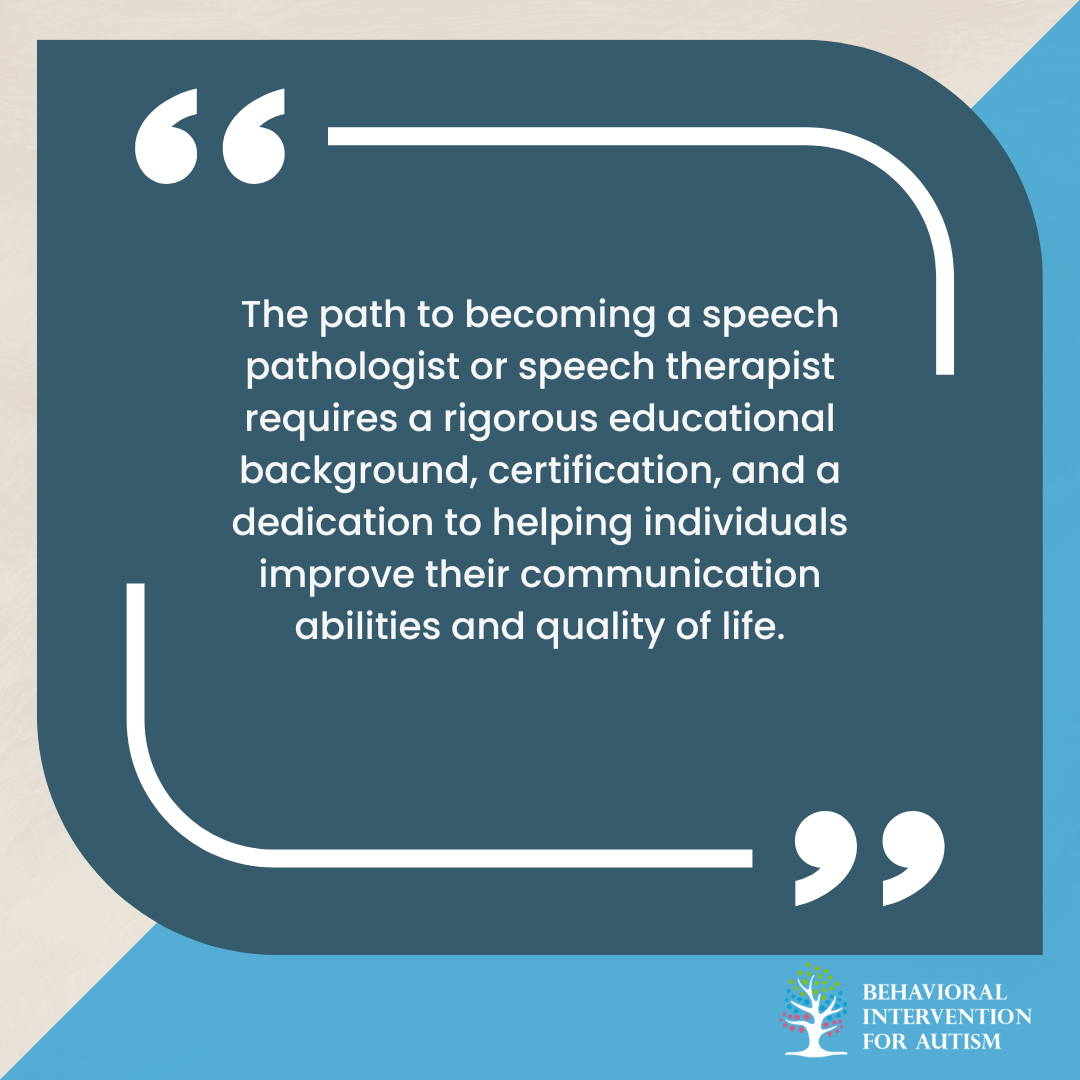
Table of Contents
Speech and language disorders can significantly impact an individual’s ability to communicate effectively, which in turn can affect their social interactions, academic performance, and overall day-to-day life. Hence, professionals in the field of speech and language therapy work tirelessly to help individuals overcome these challenges.
Two titles often encountered in this field are “speech pathologist” and “speech therapist.” This article explores the differences and similarities between these roles, clarifying their responsibilities, qualifications, and specializations to help you understand what sets them apart.
Speech Pathologist vs Speech Therapist
To begin with, it is essential to understand that the terms “speech pathologist” and “speech therapist” are often used interchangeably, but there are nuances that distinguish the two in certain contexts.
Speech Pathologist
A speech pathologist, also known as a speech-language pathologist (SLP), is a highly trained professional who specializes in diagnosing and treating speech, language, voice, and swallowing disorders. Their work encompasses a wide range of communication issues, including articulation disorders, fluency disorders (such as stuttering), receptive and expressive language disorders, social communication disorders, and cognitive-communication disorders.
Speech Therapist
A speech therapist typically refers to the same profession as a speech pathologist. In many regions, “speech therapist” is a more commonly used term, and it essentially describes the same role. However, in some contexts, particularly in educational settings, a speech therapist may focus more on direct therapy with clients, particularly children, to improve their speech and language skills.
Educational Requirements
Both speech pathologists and speech therapists generally follow the same educational pathway. The standard requirement is a master’s degree in speech-language pathology. This advanced degree program typically covers a range of subjects including anatomy and physiology of speech and hearing mechanisms, neuroanatomy, speech and language development, speech disorders, and audiology.
To practice professionally, speech pathologists and speech therapists must be licensed or certified. In the United States, for instance, the American Speech-Language-Hearing Association (ASHA) offers the Certificate of Clinical Competence in Speech-Language Pathology (CCC-SLP). This certification requires completion of a master’s program, a clinical fellowship, and passing a national examination.
Work Settings
Speech pathologists and speech therapists work in a variety of settings, including:
- Hospitals and Clinics: They provide assessment and treatment for patients with a range of speech and language disorders, often working with other healthcare professionals to provide comprehensive care.
- Schools: Many speech therapists work within educational systems, helping children with speech and language difficulties to improve their communication skills, which is critical for their academic success.
- Private Practice: Some professionals choose to open their own practice, offering specialized services to a diverse clientele.
- Research and Academia: Speech pathologists can also be involved in research, contributing to the development of new treatment methods and understanding of speech and language disorders. They may also teach at universities.
Scope of Practice
The scope of practice for both speech pathologists and speech therapists is broad and includes several key areas:
- Speech Disorders
These include issues with articulation, phonology, and fluency. Speech pathologists work with individuals who have difficulty producing sounds correctly or fluently, such as those who stutter.
- Language Disorders
Language disorders can be either receptive (difficulty understanding language) or expressive (difficulty using language). Speech pathologists help individuals improve their ability to comprehend and produce language.
- Social Communication Disorders
These disorders impact the ability to use verbal and nonverbal communication appropriately in social contexts. Therapy may focus on understanding social cues, taking turns in conversation, and using appropriate language in different situations.
- Cognitive-Communication Disorders
These involve difficulty with communication skills that are affected by cognitive impairments such as memory, attention, executive function, and problem-solving. This is common in individuals who have suffered brain injuries or have neurodegenerative conditions.
- Swallowing Disorders
Also known as dysphagia, these disorders involve difficulty swallowing, which can lead to nutritional issues and respiratory complications. Speech pathologists are trained to assess and treat swallowing disorders.
Specializations
Within the field of speech pathology, there are several areas of specialization:
- Pediatric Speech Pathology: Focuses on children with speech and language development issues, including those with autism, developmental delays, and congenital disorders.
- Geriatric Speech Pathology: Addresses communication and swallowing disorders common in the elderly, often related to stroke, dementia, or Parkinson’s disease.
- Neurogenic Communication Disorders: Specializes in disorders resulting from brain injuries or neurological conditions.
- Voice Disorders: Focuses on issues related to vocal quality, pitch, loudness, and resonance.
- Fluency Disorders: Specializes in the treatment of stuttering and other fluency issues.
Treatment Approaches
Speech pathologists and speech therapists employ a variety of techniques and therapies based on the specific needs of their clients:
- Articulation Therapy: Helps individuals learn how to produce sounds correctly.
- Language Intervention Activities: Involve playing and talking, using pictures, books, objects, or ongoing events to stimulate language development.
- Voice Therapy: Focuses on exercises to improve vocal quality and reduce strain on the voice.
- Augmentative and Alternative Communication (AAC): Involves using tools such as communication boards, electronic devices, or sign language for individuals who are nonverbal or have severe speech disorders.
- Cognitive-Communication Therapy: Includes activities to improve memory, problem-solving, and organizational skills.
- Swallowing Therapy: Involves exercises and strategies to help individuals swallow more effectively and safely.
Speech Pathologist and Speech Therapist
The terms “speech pathologist” and “speech therapist” generally refer to the same profession, with the primary difference being the terminology used in different contexts. Both roles involve the assessment and treatment of speech, language, communication, and swallowing disorders.
Conclusion
Understanding the distinctions and overlaps between these titles can help individuals seeking speech and language services make informed decisions about their care.
Whether referred to as a speech pathologist or a speech therapist, these professionals play a critical role in supporting individuals with communication challenges, enabling them to achieve their full potential in both personal and professional spheres.
If you’re looking for ABA therapy in Florida, contact Behavioral Intervention for Autism today for more information or to book a consultation.
Sources:
https://www.usa.edu/blog/speech-language-pathologist-vs-speech-therapist/
https://www.speechease.net.au/our-voice/speech-pathologists-vs-speech-therapist/
https://www.speechpathology.com/ask-the-experts/what-difference-between-speech-therapist-1057
- 9 Common Obsessions of Children With Autism You Should Know - February 25, 2025
- What is Neurodiversity? A Guide to Embracing Differences - February 25, 2025
- Understanding Hyperfocus in Autism: What It Means and Why It Happens - February 25, 2025







